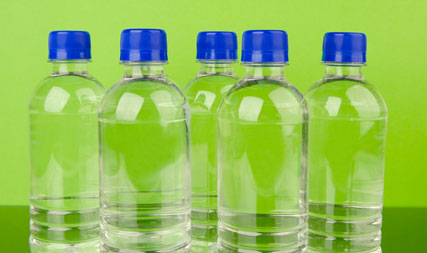Biodegradable plastics – Not there yet. Additives to breakdown plastics don’t work

GLOBE-Net, March 20, 2015 – A new study from Michigan State University shows that several additives that claim to break down polyethylene (i.e., plastic bags) and polyethylene terephthalate (i.e., soda bottles) simply don’t work in common disposal situations such as landfills or composting.
“Making improper or unsubstantiated claims can produce consumer backlash, fill the environment with unwanted polymer debris and expose companies to legal penalties,” said Susan Selke, co-author of the study and MSU packaging professor.
The results, featured in the current issue of Environmental Science and Technology, are a culmination of a three-year study that focused on five additives and three categories of biodegradation, which cover the majority of methods available on the market today.
The team studied biodegradation with oxygen, such as in composting; biodegradation without oxygen, such as in an anaerobic digester or a landfill; and simply burying plastics.
“There was no difference between the plastics mixed with the additives we tested and the ones without,” said Rafael Auras, co-author and MSU packaging professor. “The claim is that, with the additives, the plastics will break down to a level in which microorganisms can use the decomposed material as food. That simply did not happen.”
William Rathje, the late Arizona paleontologist and founder of the Tucson Garbage Project, revealed that even after years underground, chicken bones still had meat on them, grass was still green and that even carrots still maintained their orange color.
Since organic materials take so long to decompose, it’s not surprising then that plastics, even with the aid of additives, would take decades or longer to break down, if at all. So, if the additives don’t work, what’s the solution?
“The solution is to not make claims that are untrue,” Selke said. “The proper management of waste plastics is the proper management of waste plastics.”
And for now, that means not using any of the disposal methods or additives included in the study as feasible options, Selke said.
It’s a growing trend that many U.S. cities and countries have banned or have adopted legislation taxing the retail use of plastic bags, one of the largest sources of polyethylene waste. Plastic manufacturers are also seeking solutions to this problem, Selke said.
“Package-user companies funded this study because they wanted to know if the additives that are being marketed to them work,” she said. “They wanted scientific proof to evaluate the products and disposal approaches that are available to them to break down plastic.”
Additional MSU researchers contributing to this study include: Tuan Antoine Nguyen, Edgar Castro Aguirre, Rijosh Cheruvathur and Yan Liu.
This research was funded by MSU’s Center for Packaging Innovation and Sustainability.



